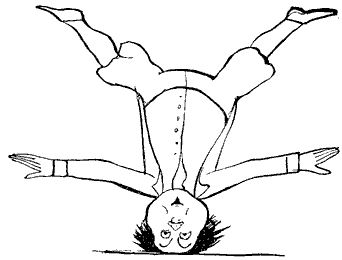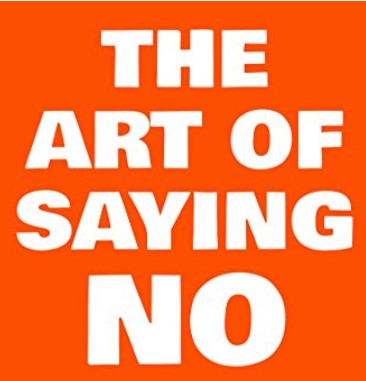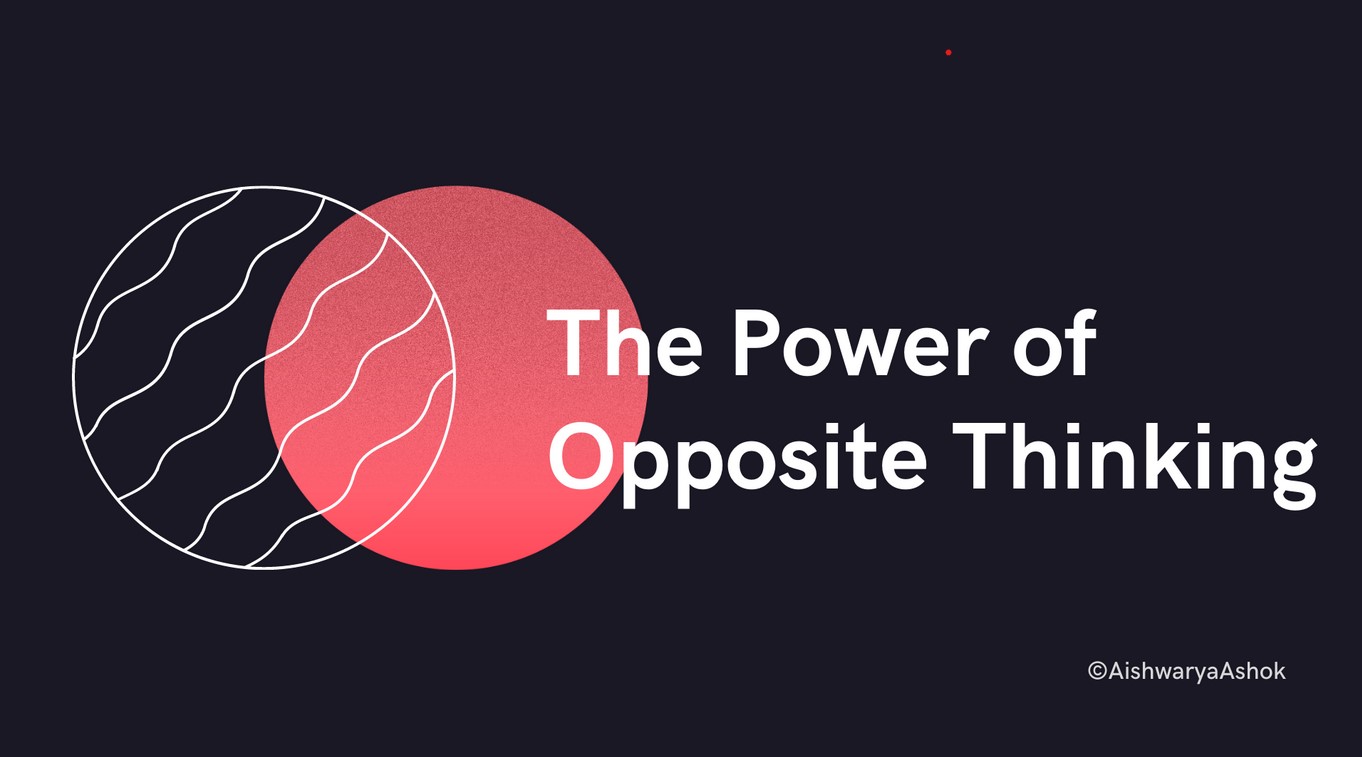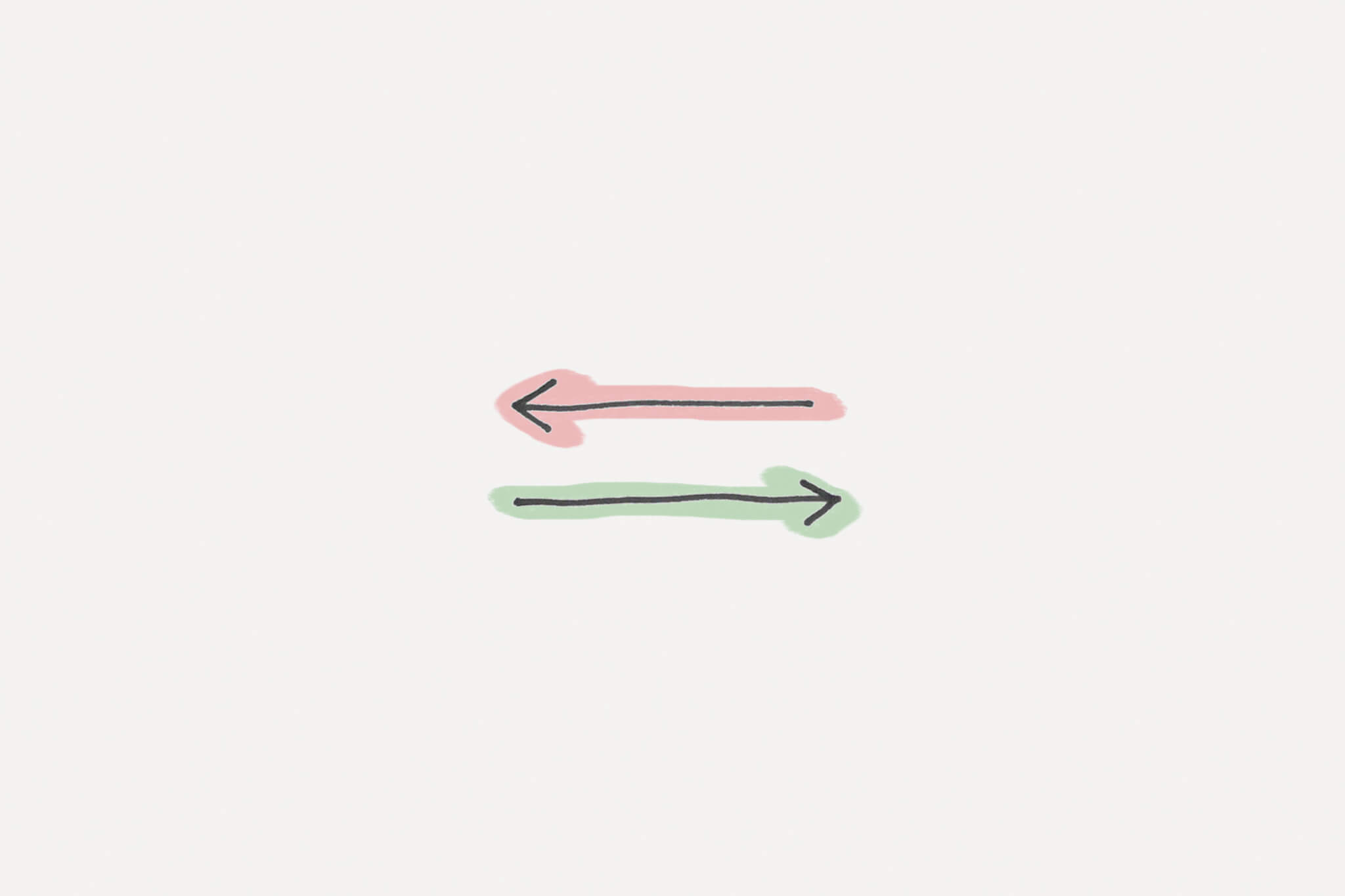Inversion - The Power Of Opposite Thinking
How To Avoid The Unwanted Outcome
You should take the approach that you’re wrong. Your goal is to be less wrong
What Is The Power Of Opposite Thinking?
The power of opposite thinking, also known as inversion, lies in its ability to stimulate creativity, enhance problem-solving, and provide a fresh perspective on challenges. It is especially useful when launching a new initiative or attempting to resolve a difficult problem.
This is a cognitive technique that involves thinking about opportunities, problems or challenges in reverse order. Instead of focusing on how to achieve a desired outcome, you consider the opposite – how to avoid the undesired outcome.
Smallpox and Dairymaids
The English physician Edward Jenner worked for many years to find a cure for smallpox which was one of the most lethal diseases in 18th century Britain. Eventually, after studying multiple cases, he reached a dead end in his thinking.
Then Jenner decided to reverse his thinking and rather focusing on people who had smallpox, he shifted his attention to people who never had smallpox, and he discovered that dairymaids rarely got the disease.
He also discovered that
most dairymaids did catch cowpox, which was a similar to but nowhere near as lethal as smallpox.
Jenner then deduced that cowpox had effectively to vaccinated its victims against the more
dangerous smallpox. This led to Jenner’s concept of immunising people via vaccination, which in turn was instrumental in the ultimate eradication of smallpox
.
The Stoics and the Samurai
The 1st century Stoics were early practitioners of the power of opposite thinking which they called a "premeditatio malorum", which translated from Latin means a “premeditation of evils.”
Their idea was to contemplate all the negative things possible in life. For example, the Stoics would imagine losing their home, becoming ill, losing their status in society, or losing their reputation.
The basis of this thinking was that in imagining the worst possible circumstances ahead of time it enabled them to overcome their fears and create better opportunities to avoid them.
In a similar manner the 12th century samurai warriors used a technique where you "die before you go into battle" whereby they deeply contemplated their deaths before they fought and were released from their fear of death and thus fought more effectively.
Inversion

In more recent times, the inversion technique is associated with the German mathematician, Carl Jacobi.
He was well-known for solving difficult problems by using the simple strategy of ‘man muss immer umkehren,’ which means ‘Invert, always invert.’
He proposed that hard problems could be solved more easily and more quickly through inversion.
The most powerful benefit of using the inversion technique is that it will help you to avoid the bad decisions preventing you from achieving your goals.
The late Charlie Munger highlights this point:
“Invert, always invert: Turn a situation or problem upside down.
Look at it backward. What happens if all our plans go wrong? Where don’t we want to go, and how do you get there?
Instead of looking for success, make a list of how to fail instead–through sloth, envy, resentment, self-pity, entitlement, all the mental habits of self-defeat.
Avoid these qualities and you will succeed."
The Benefits Of Opposite Thinking
The power of opposite thinking, or inversion, lies in its ability to reveal hidden assumptions, identify potential risks, and generate creative solutions.
By examining a situation from a different angle, you may uncover insights that were not apparent when approaching it conventionally. Here are some of the benefits ofthe power of opposite thinking, it:
- Breaks Mental Rigidity - Inversion challenges conventional thinking patterns and breaks mental rigidity. It encourages you to step out of your comfort zone and explore ideas and solutions that may not have been considered initially.
- Identifies Hidden Assumptions - By examining a problem from the opposite angle, you can identify and question hidden assumptions, gain a deeper understanding, and identify otherwise overlooked aspects that can have an influence on the situation.
- Enhances Decision-Making - By considering the negative consequences or potential drawbacks of different options it helps you make more well-rounded decisions and encourages a thorough evaluation of the risks and benefits associated with each choice.
- Promotes Creativity - It can lead to novel and creative solutions. It encourages thinking outside the box and generates unconventional ideas that may not have emerged through traditional problem-solving approaches.
- Mitigates Risk - By considering what could go wrong and planning accordingly, you can proactively address potential challenges and reduce the impact of adverse events.
- Enhances Learning from Experience - Reflecting on past mistakes or failures through the lens of opposite thinking allows you to extract valuable lessons about what went wrong and how similar situations can be approached differently in the future.
And yet despite all these benefits, this is not a common or popular way of thinking, and this is why most people fail to benefit from the power of opposite thinking - and frankly often just fail.
How To Apply The Power Of Opposite Thinking

Guidelines For Applying The Power Of Opposite Thinking
Here are a series of guidelines for applying the power of opposite thinking. This list is not prioritised. The relevance and benefit of each point depends on context and circumstance.
# Winning By Not Losing

Professionals win points. Amateurs lose them.
Professionals win by being better than their opponent. The outcome is mostly within their control. They play a winners game. They have access to more money, better advice, and extensive resources that are not available or accessible to the amateur.
Amateurs play a loser’s game and win by being the person who makes the
fewest mistakes.
Unpopular as this may seem, most of the time most of us are playing the game of the professionals, whereas the reality is that we are amateurs.
The sensible amateur inverts the challenge and rather than trying to win, focuses on not losing.
# When Operating Outside Of Your Circle Of Competence
It is important to understand your circle of competence. It’s just as important to know what you don’t know as it is to know what you know.
If you’re forced to make a decision in an area that you know is outside your circle of competence, employ the power of opposite thinking.
# Minimizing Unintended Consequences
It is impossible to completely eliminate unintended consequences, but you can become more aware of them through opposite thinking and working backward.
# Habits You Need to Stop Now To increase Productivity

Rather than reading endless self-help articles and books full of things you should start doing to be more productive, it’s often better to just stop doing things that hinder productivity.
This is about the art of saying no.
# Retrograde Analysis: Working Backward to Solve Problems
In this short video, grandmaster Maurice Ashley walks us through retrograde analysis, which is a method to solve game positions in chess by working backward from known outcomes.
# Subtractive Knowledge: Less Is More
Nassim Taleb argues that the greatest “and most robust contribution to knowledge consists in removing what we think is wrong [subtractive solutions] - we know a lot more about what is wrong than what is right... since one small observation can disprove a statement, while millions can hardly confirm it, disconfirmation is more rigorous than confirmation.”
What does not work - negative knowledge - is more robust than positive knowledge.
"Being antifragile isn’t about what you do, but rather what you avoid. Avoid fragility. Avoid stupidity. Don’t be the sucker."
# Avoiding Charlatans
Nassim Taleb: "I have used all my life a wonderfully simple heuristic: charlatans are recognizable in that they will give you positive advice, and only positive advice, exploiting our gullibility and sucker-proneness for recipes that hit you in a flash as just obvious, then evaporate later as you forget them."
Real mentors and advisors have skin in the game and they will also tell you what to not do and what to avoid.
The Power Of Opposite Thinking - Key Questions
- What do I want to avoid?
- What can go wrong?
- What can I remove?
- What can I say no to?
- And then what? [Repeat at least three times.]
- What unlikely and extreme outcomes am I discounting?
- Where are the anomalies and disconfirming evidence?
- Does the harm of this intervention outweigh the intended benefits?
Prioritise:
Further Reading:
Discernment - Exercising Good Judgement
Elon Musk - Ordinary People Can Choose To Be Extraordinary
Return from: "The Power Of Opposite Thinking"
To: How To Think - Thinking Skills, Focusing On HOW Not WHAT To Think
Or To: Inversion - Avoiding Stupidity Is Easier Than Seeking Brilliance
LATEST ARTICLES
The Inner Weight of Shame - Sustained By Attentional Fixation
 A Mind That Is Continuously Engaged In Self-Surveillance. Shame is one of the heaviest inner burdens a human being can carry. It does not announce itself loudly or demand attention through drama. Inst…
A Mind That Is Continuously Engaged In Self-Surveillance. Shame is one of the heaviest inner burdens a human being can carry. It does not announce itself loudly or demand attention through drama. Inst…Does Prayer Work? The Psychology of Prayer, Meditation and Outcomes
 Reality Is A Complex System Of Countless Interactions - Including Yours. So does prayer work? The problem is that the question itself is usually framed in a way that guarantees confusion. We tend to a…
Reality Is A Complex System Of Countless Interactions - Including Yours. So does prayer work? The problem is that the question itself is usually framed in a way that guarantees confusion. We tend to a…Living in Survival Mode Without Surrendering Mental Authority
Living in Survival Mode Without Surrendering Mental Authority
 Clear Thinking When You’re Just Trying to Stay Afloat. Many people today are overwhelmed because they are living in survival mode - not temporarily, but as a persistent condition of life. For many, th…
Clear Thinking When You’re Just Trying to Stay Afloat. Many people today are overwhelmed because they are living in survival mode - not temporarily, but as a persistent condition of life. For many, th…Manifestation Without Magic: A Practical Model
 Manifestation without magic is not a softer or more intellectual version of popular manifestation culture. It is a different model altogether. Popular manifestation teachings tend to frame reality as…
Manifestation without magic is not a softer or more intellectual version of popular manifestation culture. It is a different model altogether. Popular manifestation teachings tend to frame reality as…Staying Committed When You Can't See Progress - The Psychology of Grit
 Uncertainty Is Not The Absence Of Progress, Only The Absence Of Reassurance. One of the most destabilising experiences in modern life is not failure, but uncertainty and staying committed when you can…
Uncertainty Is Not The Absence Of Progress, Only The Absence Of Reassurance. One of the most destabilising experiences in modern life is not failure, but uncertainty and staying committed when you can…The Battle For Your Mind - How To Win Inner Freedom In A Digital Age Of Distraction
 From External Events to Inner Events. We often think of “events” as things that happen out there: the traffic jam, the rude comment, the delayed email reply. But what truly shapes our experience is wh…
From External Events to Inner Events. We often think of “events” as things that happen out there: the traffic jam, the rude comment, the delayed email reply. But what truly shapes our experience is wh…How to See Your Thoughts Without Becoming the Story
 A Practical Guide to Thought-Awareness. You can spend your life inside the stories of your mind without ever learning how to see your thoughts clearly and objectively. Most of the stuff we tell oursel…
A Practical Guide to Thought-Awareness. You can spend your life inside the stories of your mind without ever learning how to see your thoughts clearly and objectively. Most of the stuff we tell oursel…The Collison Decision Matrix - A Simple Framework for Better Choices
 The Collison Decision Matrix Is A Practical Everyday Thinking Tool. Most of us spend a surprising amount of time worrying about decisions. From small ones such as what to wear, what to eat, what to te…
The Collison Decision Matrix Is A Practical Everyday Thinking Tool. Most of us spend a surprising amount of time worrying about decisions. From small ones such as what to wear, what to eat, what to te…The Power Of Asking The Right Question
 The Power Of Asking The Right Question Lies In The Quest For Insight. To experience the power of asking the right question you must develop the practice of asking questions. The best way to improve th…
The Power Of Asking The Right Question Lies In The Quest For Insight. To experience the power of asking the right question you must develop the practice of asking questions. The best way to improve th…Site Pathways
 Here is a site pathway to help new readers of Zen-Tools navigate the material on this site. Each pathway is based around one of the many key themes covered on this site and contain a 150 word introduc…
Here is a site pathway to help new readers of Zen-Tools navigate the material on this site. Each pathway is based around one of the many key themes covered on this site and contain a 150 word introduc…How To Live With Contradiction - Beyond Thought Let Stillness Speak
 A major impact on so many peoples' lives is the situational contradiction of unfilled realistic expectations. So where does all this leave us? Well here we are, with mental equipment that is more lim…
A major impact on so many peoples' lives is the situational contradiction of unfilled realistic expectations. So where does all this leave us? Well here we are, with mental equipment that is more lim…


